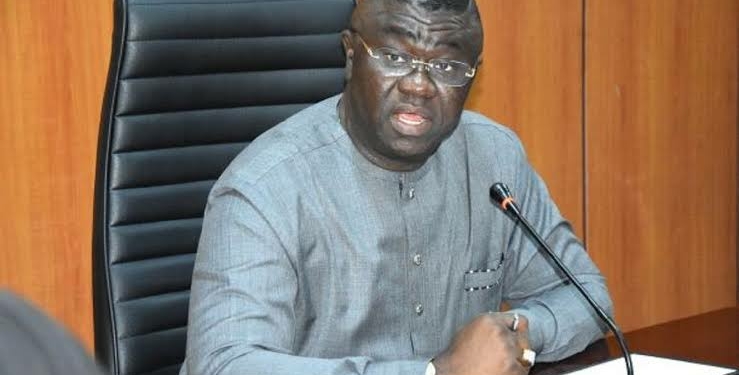The Federal Government says it has spent about 2.3 trillion Naira as a stimulus package to cushion the effects of the COVID-19 pandemic on Nigerians.
The Minister of State, Budget and National Planning, Prince Clem Agba disclosed this on Tuesday at a 3-Day National Treasury Workshop with a theme: ‘COVID- 19 and the global economy: Implications on Nigeria’s National Treasury,’ organised by the Office of the Accountant General of the Federation in Uyo, Akwa Ibom State capital.
Giving a breakdown of the expenditure, Agba said the packages consisted, to a large extent a combination of fiscal and monetary policies, sectoral interventions, and social programmes.
He said the fiscal and monetary policies were supports to states, businesses, households and individuals through grants, tax reliefs, payroll support, tariff reductions, and direct support to the health sector.
The Minister added that the real sector interventions were focused on mass agriculture, mass housing, public works, off-grid solar power installations and support to small businesses.
He said these interventions created a large number of jobs, empowered farmers and entrepreneurs, conserved foreign exchange and provided guaranteed offtake of output, especially in agriculture and housing.
Part of his statement read “COVID-19 which started as health pandemic snowballed into an economic pandemic, so, to accelerate quick recovery of the economy, we develop some strategies which include; national stimulus economic package, mobilisation of external support and funding and increase in non-oil revenue generation.
“These were aimed at retaining and creating jobs, increasing our productivity ensuring social stability and addressing long-standing economic vulnerabilities.
“Thus, the impact of Covid-19 and dwindling revenue from oil, in spite of these, we will continue to expand government policies to cushion the effect with a total estimated stimulus package by the federal government of Nigeria of 2.3 trillion naira
“We took steps to increase our non-oil revenue generation. These steps included but not limited to VAT reforms in the Finance Act 2020, customs administration enhancement, tax exemption, increased remittances and recovery of remitted revenue from government own enterprises.”
In his remarks, Gov. Udom Emmanuel of Akwa Ibom said the state government had set up Post COVID-19 Economic Advisory Committee made up of professionals to advise the government on the way forward.
Emmanuel, who was represented by his Deputy, Mr Moses Ekpo, said that the state government had started implementing some of the committee recommendations, such as the applications of ICT and other tools of technology to stimulate entrepreneurial drives amongst the people.
“Today, even though we still have work to do, our youths have positive expressions in the use of their hands and creative abilities to create a sustainable living for themselves, using technology as a means of engagement.
Earlier in his welcome address, the Accountant General of the Federation, Ahmed Idris, said the workshop would provide financial shock-absorber to the government on how to manage any pandemic induced financial challenges.
Idris added the workshop would further enlighten financial managers in government on how to control aggregate cash flows within fiscal, monetary and legal limits that would in the improvement in the management of critical government borrowings and deploying the same to infrastructure.










Discussion about this post